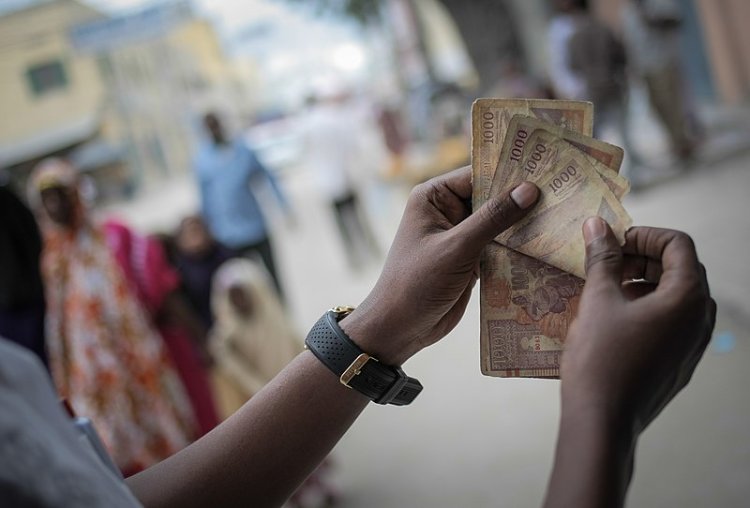Remittance in Nepal: Transforming Lives and Driving Growth
Discover the economic impact of remittance in Nepal, including poverty reduction and domestic consumption. Learn about challenges, opportunities, and strategies for sustainable development through remittance.

Remittance plays a vital role in Nepal's economy, transforming lives and driving economic growth. As Nepalese individuals work abroad and send money back home, the inflow of remittances contributes significantly to the country's development. This article explores the phenomenon of remittance in Nepal, its economic impact, challenges, and ways to harness its potential for sustainable development.
Remittance and its Significance:
In Nepal, remittance refers to the transfer of money or resources by Nepalese individuals working overseas to their families ands communities in Nepal. Remittance inflows are crucial for the country's economic development, as they provide additional financial resources that support households, improve living standards, and reduce poverty levels.
Factors Driving Remittance Inflows:
Several factors drive the growth of remittance inflows in Nepal. Economic opportunities abroad, such as job prospects and higher wages, act as primary motivations for Nepalese individuals to seek employment in foreign countries. The promise of a better income and the chance to support their families back home are strong incentives for migration. Additionally, social and cultural factors, including family obligations and community expectations, influence the decision to work abroad and send remittances.
Patterns and Trends of Remittance Flows:
Analyzing the patterns and trends of remittance flows provides valuable insights into the dynamics of Nepal's remittance landscape. Over the years, remittance inflows have shown a steady increase, contributing significantly to the country's Gross Domestic Product (GDP). Understanding these patterns helps policymakers and economists formulate effective strategies to maximize the benefits of remittances and mitigate any potential risks.
Remittance Outflows: The Other Side of the Coin:
While remittance inflows receive significant attention, it is equally important to consider outward remittances from Nepal. Outward remittance refers to the money sent by Nepalese individuals or businesses to foreign countries. This outflow of funds can be for various purposes, such as education, medical treatment, travel, or investment. Understanding the dynamics of outward remittances provides insights into the financial behavior and preferences of Nepalese individuals and their impact on the global economy.
The Role of Technology in Remittance:
Technology has revolutionized the remittance landscape in Nepal. The advent of digital platforms, mobile banking, and mobile money services has made remittance transactions faster, more convenient, and cost-effective. These technological advancements have not only improved access to financial services but also expanded financial inclusion, particularly among the unbanked population. Embracing and leveraging technology in remittance services can further enhance efficiency, reduce costs, and facilitate financial empowerment for remittance recipients.
Economic Impact of Remittance:
Remittance acts as a lifeline for many households in Nepal. Remittance is a vital economic pillar in Nepal, contributing significantly to GDP and providing a stable income source for households. It serves as a critical source of income, enabling families to meet their basic needs and invest in their future. The inflow of remittances leads to improved living standards, reduced poverty levels, and increased access to healthcare and education. Moreover, remittances stimulate domestic consumption, driving economic growth by creating demand for goods and services within the country.
Challenges and Concerns:
While remittance brings numerous benefits, it also presents challenges and concerns. Dependency on remittance inflows can lead to long-term economic vulnerabilities, as the country becomes reliant on external sources of income. There is a need for effective policies and programs to ensure that remittances are harnessed optimally for sustainable development. Balancing the reliance on remittance with other sectors of the economy is crucial for long-term growth.
Harnessing Remittance for Development:
To maximize the impact of remittance on Nepal's development, it is essential to encourage the productive investment of remittances. Promoting entrepreneurship and small-scale industries can create job opportunities and generate income within the country. Enhancing financial literacy among remittance-receiving households can empower them to make informed financial decisions, save, and invest in productive ventures.
Remittance and Social Transformation:
Remittance has far-reaching effects on social dynamics and cultural changes in Nepal. The empowerment of women through remittance management is a significant outcome, as they gain increased financial independence and decision-making power within their families and communities. Furthermore, remittance inflows contribute to advancements in education and healthcare, as families can afford better educational opportunities and improved healthcare services.
Ensuring Sustainable Remittance:
To ensure the sustainability of remittance inflows, reducing transaction costs and improving financial services are crucial. Lowering the fees associated with remittance transfers encourages more funds to reach the intended recipients. Strengthening legal frameworks to protect the rights of migrant workers is vital for their well-being and contributes to sustainable remittance practices. Collaboration between the government, financial institutions, and international organizations is essential to create an enabling environment for remittance flows.
Future Outlook and Projections:
As the remittance sector in Nepal continues to evolve, it is essential to consider the future outlook and projections. Factors such as geopolitical developments, technological advancements, changes in migration patterns, and global economic trends will shape the remittance landscape. Understanding these dynamics can help stakeholders prepare for potential opportunities and challenges, devise appropriate policies, and build a resilient remittance ecosystem that benefits Nepal's economy and its people.
Conclusion
In conclusion, remittance plays a pivotal role in empowering lives and driving economic growth in Nepal. The inflow of remittances improves living standards, reduces poverty, and stimulates domestic consumption. However, it is crucial to balance the reliance on remittance with other sectors of the economy and develop sustainable strategies for long-term development. By harnessing the potential of remittance, Nepal can create a brighter future for its people.
Frequently Asked Questions (FAQs)
-
How does remittance impact Nepal's economy?
Remittance plays a crucial role in improving living standards, reducing poverty, and stimulating domestic consumption, thereby contributing to economic growth. -
What are the challenges associated with remittance in Nepal?
Nepal faces challenges such as over-dependency on remittance, potential brain drain, and the need for effective policies to ensure sustainable development. -
How can remittance be utilized for productive investment?
Encouraging entrepreneurship, promoting small-scale industries, and enhancing financial literacy are key strategies to utilize remittance for productive investments. -
How does remittance empower women in Nepal?
Remittance provides women with increased financial independence and decision-making power, enabling them to contribute to their families and communities positively. -
What steps are being taken to reduce transaction costs and protect migrant workers' rights?
The government, financial institutions, and international organizations are collaborating to improve financial services, reduce remittance transfer costs, and strengthen legal frameworks to protect migrant
What's Your Reaction?








































































































